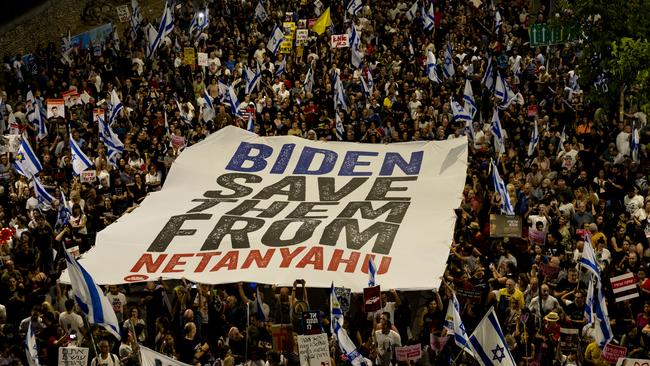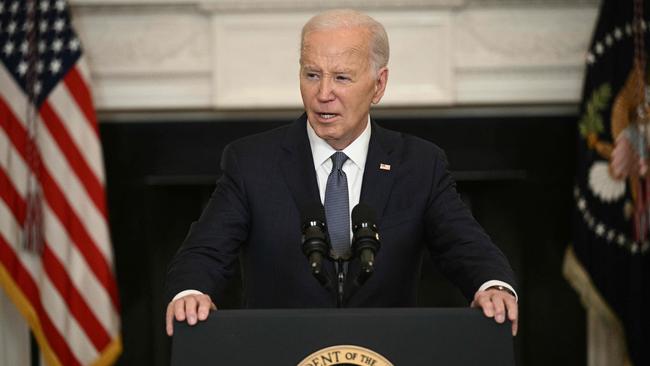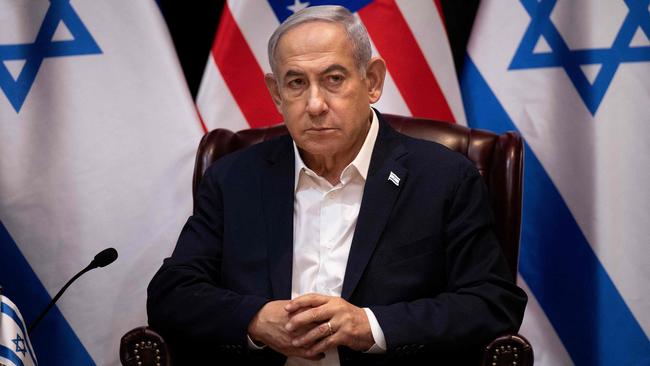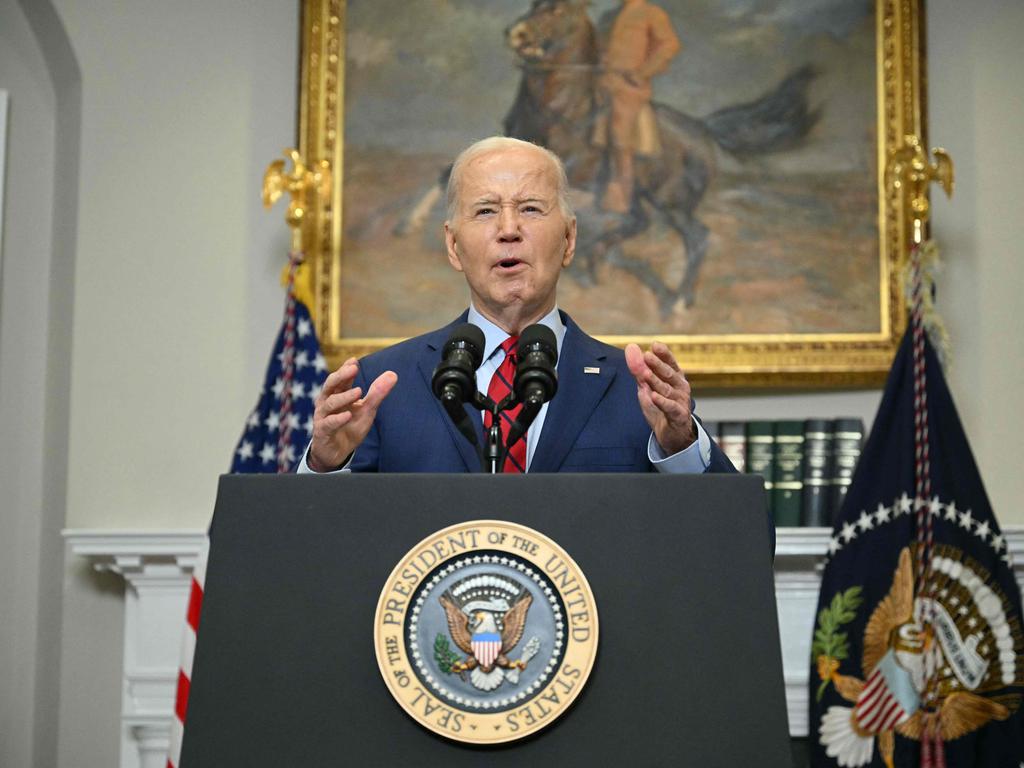Gaza road map doesn’t stop Rafa firestorm
Israeli forces continued to hammer Rafah in southern Gaza at the weekend, only hours after US President Joe Biden said Israel was offering a new road map towards a full ceasefire.

Israeli forces continued to hammer Rafah in southern Gaza at the weekend, only hours after US President Joe Biden said Israel was offering a new road map towards a full ceasefire.
Shortly after Mr Biden’s announcement, Israeli Prime Minister Benjamin Netanyahu insisted his country would pursue the war until it had achieved all its aims.
“Israel’s conditions for ending the war have not changed: the destruction of Hamas’s military and governing capabilities, the freeing of all hostages and ensuring that Gaza no longer poses a threat to Israel,” Mr Netanyahu said.
Hamas said it “views positively” the Israeli plan laid out by Mr Biden on Saturday.
In his first major address outlining a possible end to the nearly eight-month war, Mr Biden said Israel’s three-stage offer would begin with a six-week phase in which Israeli forces would withdraw from all populated areas of Gaza.
“It’s time for this war to end, for the day after to begin,” he said.

US Secretary of State Antony Blinken called his counterparts from Jordan, Saudi Arabia and Turkey to press the deal.
UN chief Antonio Guterres “strongly hopes” the latest development “will lead to an agreement by the parties for lasting peace”, a spokesman said.
German Foreign Minister Annalena Baerbock said the offer provided “a possible path out of the war’s deadlock”, while EU chief Ursula von der Leyen welcomed a “balanced and realistic” approach to end the bloodshed.
Saudi Arabia stressed its “support for all efforts aimed at an immediate ceasefire” and the withdrawal of Israeli troops.
Indonesia, meanwhile, said it was ready to send “significant peacekeeping forces” and medical personnel to Gaza if a ceasefire was agreed upon.
But Mr Netanyahu took issue with Mr Biden’s presentation of what was on the table, insisting that according to the “exact outline proposed by Israel”, the transition from one stage to the next was “conditional” and crafted to allow it to maintain its war aims.

Israel has repeatedly vowed to destroy Hamas since the Palestinian militant group attacked southern Israel on October 7.
Israeli opposition leader Yair Lapid said the government “cannot ignore Biden’s important speech” and should accept the proposed deal, vowing to back Mr Netanyahu if his far-right coalition partners quit over it.
Two far-right Israeli ministers threatened on Saturday to quit the government if he went ahead with the hostage release deal.
National Security Minister Itamar Ben Gvir said his party would “dissolve the government” and slammed the proposal as “a victory for terrorism and a security risk to the State of Israel”. “Agreeing to such a deal is not total victory – but total defeat,” he said.
Finance Minister Bezalel Smotrich said he would “not be part of a government that will agree to the proposed outline”.
“We demand the continuation of the war until Hamas is destroyed and all hostages return,” Mr Smotrich said on X, adding that he opposed the return of displaced Gazans to the territory’s north and the “wholesale release of terrorists”.
Hours later, residents reported tank fire in west Rafah, while witnesses in the east and centre described intense shelling.
“From the early hours of the night until this morning, the aerial and artillery bombardment has not stopped for a single moment,” a resident from west Rafah said.
There was also shelling and gunfire from the Israeli army in Gaza City, in the north of the territory.
Israel sent tanks and troops into Rafah early last month, ignoring concerns over the safety of Palestinian civilians sheltering in the city on the Egyptian border.
Before the Rafah offensive began, the UN said up to 1.4 million people were sheltering in the city. Since then, one million have fled the area, the UN agency for Palestinian refugees says.
The Israeli seizure of the Rafah crossing has further slowed sporadic deliveries of aid for Gaza’s 2.4 million people and effectively shut the territory’s main exit point.
Israel said last week that aid deliveries had been stepped up. But Mr Blinken acknowledged on Friday that the humanitarian situation was “dire” despite US efforts to bring in more assistance.
The Gaza war was sparked by Hamas’s unprecedented October 7 attack, which resulted in the deaths about 1200 people, mostly civilians. Militants also took 252 hostages, 121 of whom remain in Gaza, including 37 the army says are dead.
Israel’s retaliatory offensive has killed at least 36,379 people in Gaza, mostly civilians, according to the Hamas-run territory’s health ministry.
In northern Gaza, witnesses said that after carrying out a three-week operation in the town of Jabalia, troops had ordered residents of nearby Beit Hanun to evacuate ahead of an imminent assault.
AFP




To join the conversation, please log in. Don't have an account? Register
Join the conversation, you are commenting as Logout